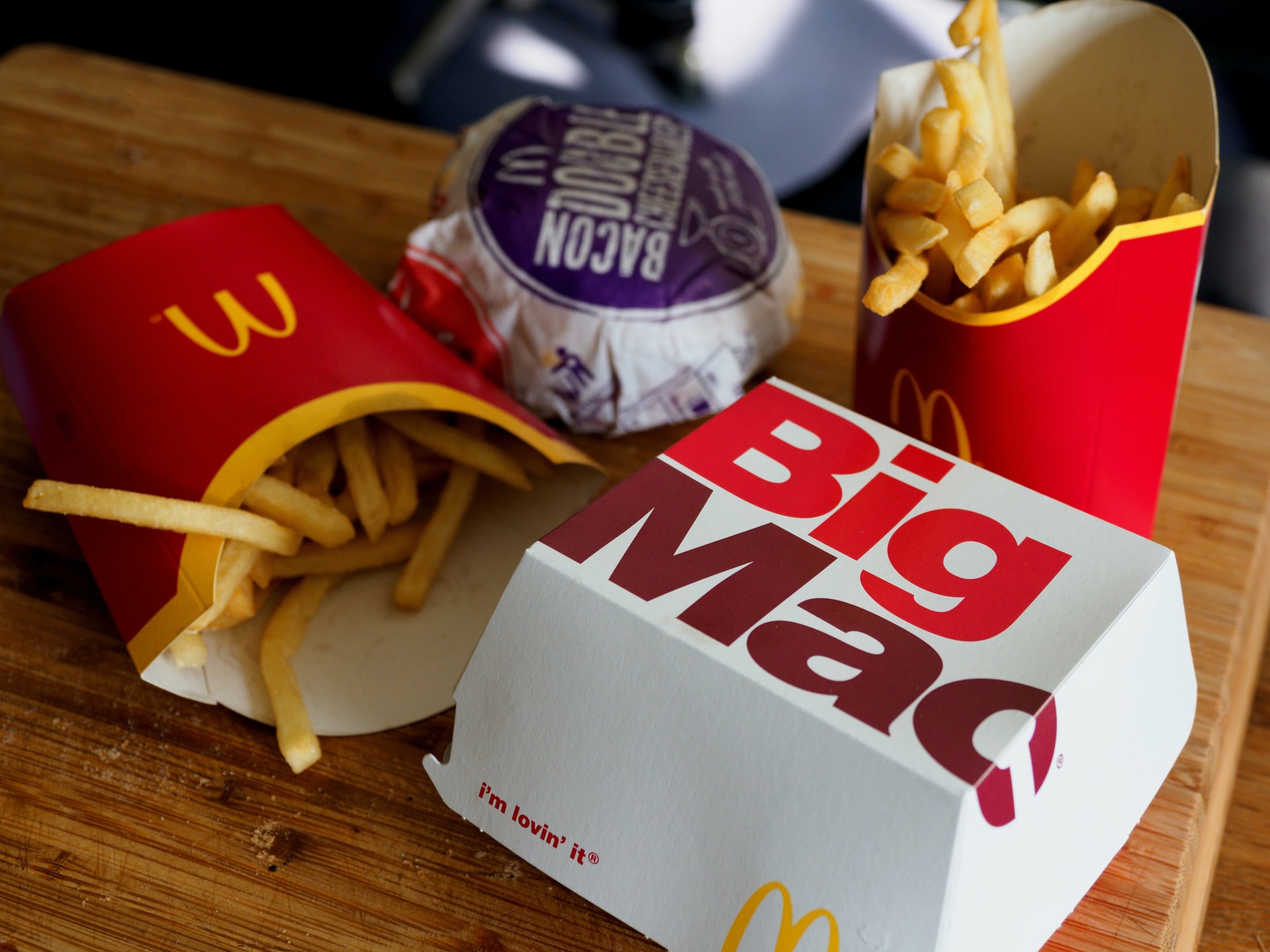What does the Big Mac index say about the dollar

The Big Mac Index was intended not as a burger shopping guide but as an ironic guide to currencies. The Economist article
When The Economist introduced its Big Mac index 35 years ago, the ubiquitous McDonald's burger cost just $ 1.60 in America. It now costs $ 5.65, according to an average of prices in four major cities. The increase comfortably outstrips inflation over the same period.
In fact, the birthplace of the Big Mac is one of the most expensive places to buy it, according to our comparison of over 70 countries around the world. In Vietnam, for example, burgers cost 69,000 dong. While it sounds exorbitant, in Vietnam you can get a lot of dongs for your dollar and, therefore, a lot of money for your money. You can buy 69,000 dong for just $ 3 on the foreign exchange market. And so a Big Mac in Vietnam turns out to be 47% cheaper than in America.
Good to know. But the index was intended not as a burger shopping guide but as an ironic guide to currencies. In principle, the value of a currency should reflect its power to buy things, according to the doctrine of "purchasing power parity", a term coined by Gustav Cassel, a Swedish economist, in 1918. Since 69,000 dong and $ 5.65 has the same power as buying a burger, they should be worth the same amount. The fact that you can buy the value of a hamburger in dong for 47% less than the value of a hamburger in dollars suggests that the dong is undervalued.
The US Treasury certainly thinks so. Twice a year it reports to Congress on countries that could keep their currencies artificially cheap to boost exports and steal a competitive advantage. In April, he confirmed that Vietnam was one of three trading partners, along with Switzerland and Taiwan, pursuing "potentially unfair" currency practices, based on three tests of his own invention. (Vietnam has a "significant" trade surplus with America, a "material" external surplus with the world, and its central bank buys many dollars and other foreign currencies.) In recent months, the US Treasury has been pressuring Vietnam to correct its methods, a process known as "enhanced engagement".
On July 19, the two sides reached an agreement. Vietnam's central bank has promised not to indulge in competitive devaluation. She also said she would gradually let the currency float more freely and be more open about her interventions in the currency markets. With any luck, this will avoid harmful tariffs or any other similar enhancements to the two countries' engagement.
To prevent the Big Mac index from contributing to Vietnam's troubles, it is worth pointing out that it is common for poor countries to look cheap than rich ones in any simple price comparison. Vietnam is no exception in this respect. The price of a burger is about what one would expect given the country's per capita GDP. (Taiwan, another country on the Treasury's bad path, is a different case. It remains surprisingly cheap, given how prosperous it has become. And Switzerland looks expensive in every way.)
The cheapest burger we could find is in Lebanon. Although the price of a Big Mac has dramatically increased to 37,000 Lebanese pounds, the currency has plummeted even more dramatically on the black market, where 22,000 pounds buys a dollar.
As a result, the Big Mac costs the equivalent of only $ 1.68. One reason the burger has remained so cheap may be that Lebanese importers can purchase some of the Big Mac's ingredients at a more favorable, subsidized exchange rate. They can buy a dollar of wheat, for example, for £ 1,500 and other food items, including cheese, at a rate of 3,900. Lebanon's currency chaos is both a reflection of its economic disaster and a contributing factor to it. Even at an artificially low price, a Big Mac is a small consolation.
(Extract from the foreign press review by Epr Comunicazione)
This is a machine translation from Italian language of a post published on Start Magazine at the URL https://www.startmag.it/economia/cosa-dice-indice-big-mac-sul-dollaro-e-sul-dong/ on Sun, 01 Aug 2021 05:46:27 +0000.
